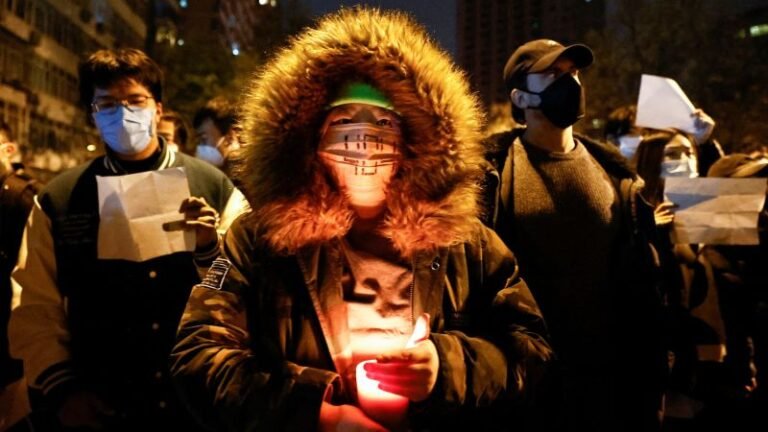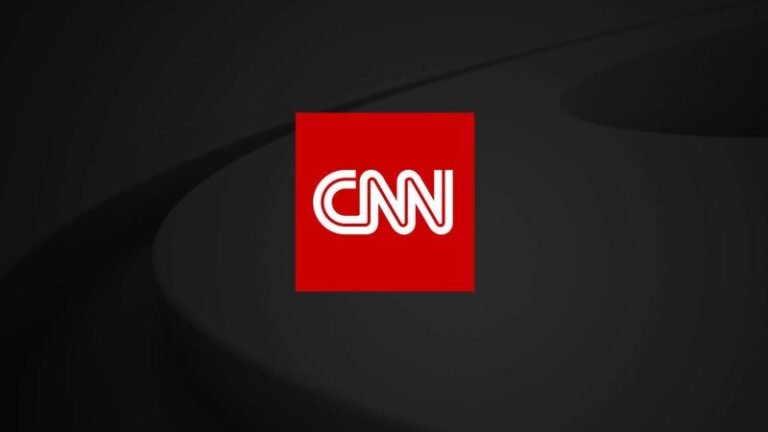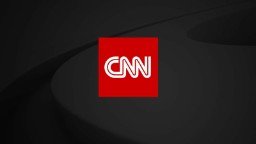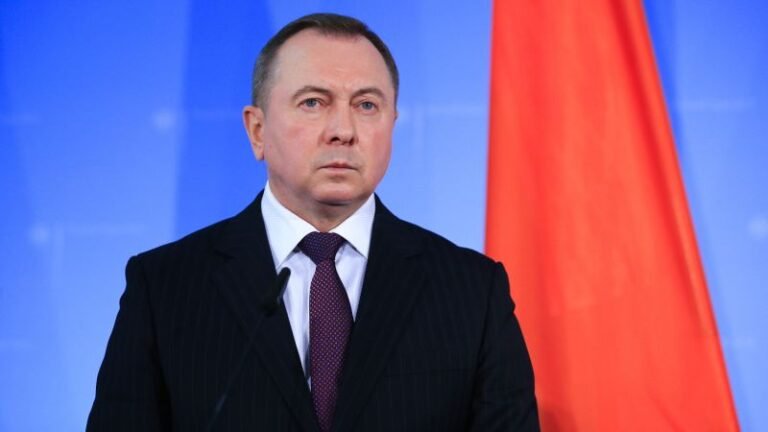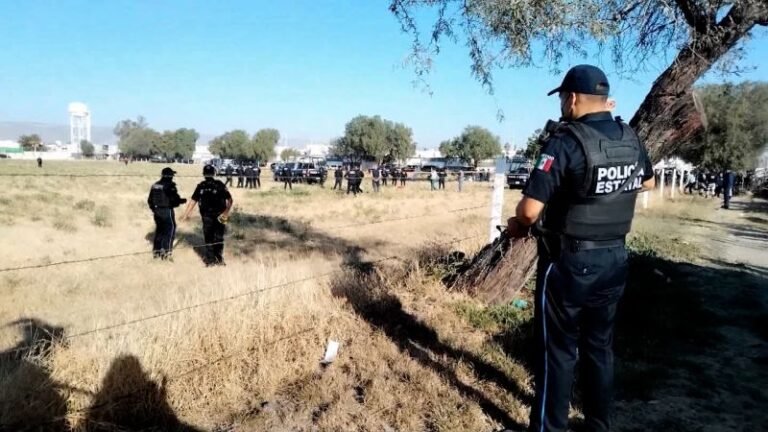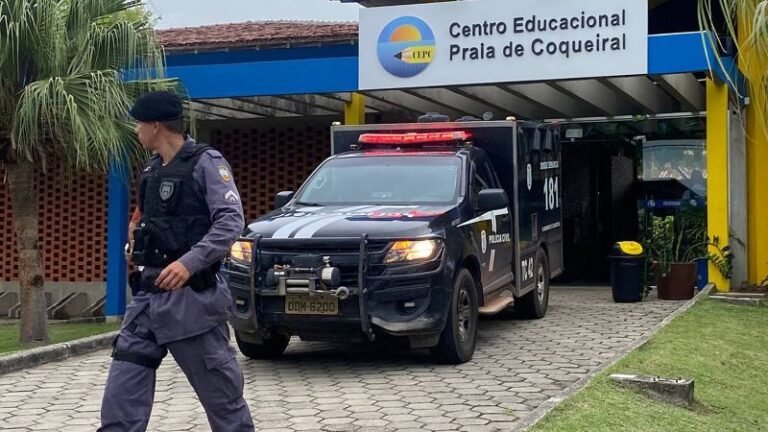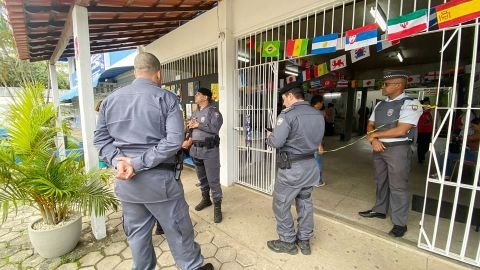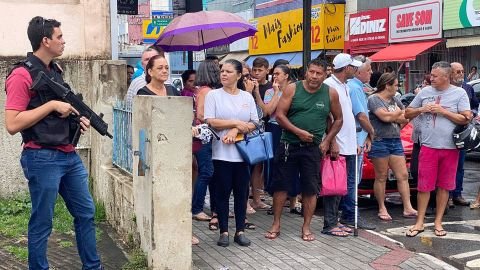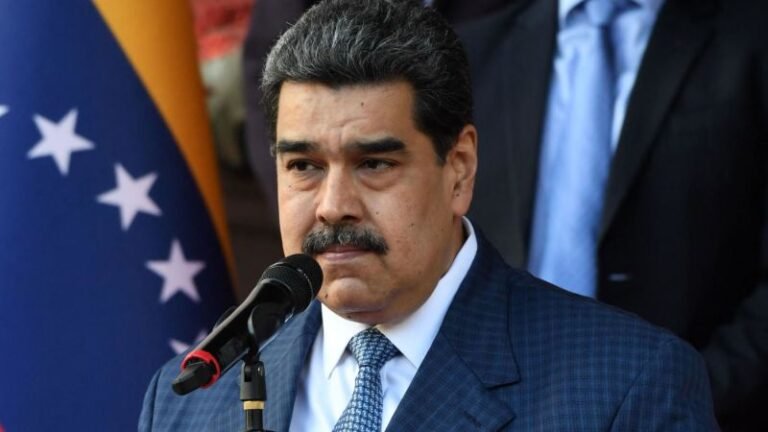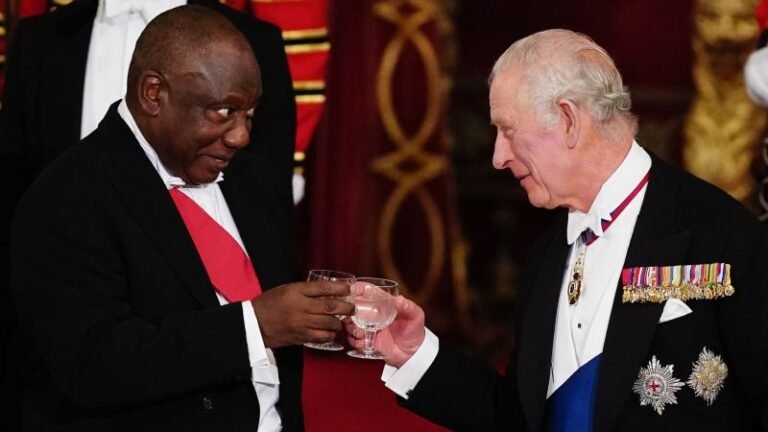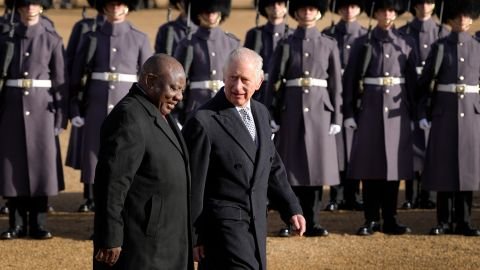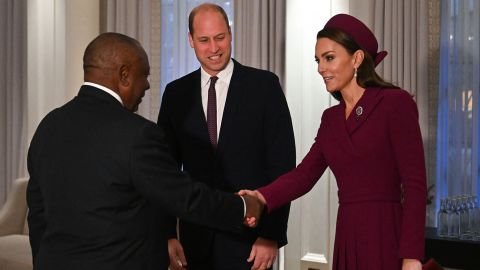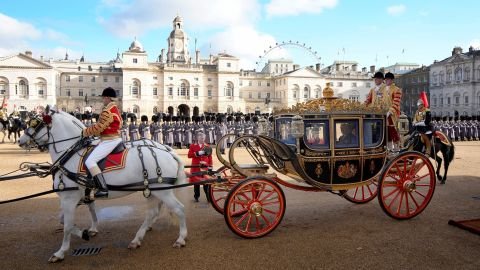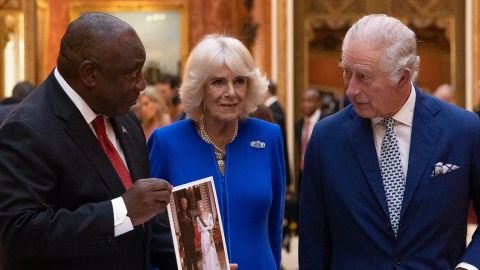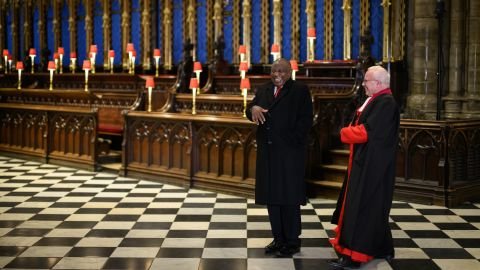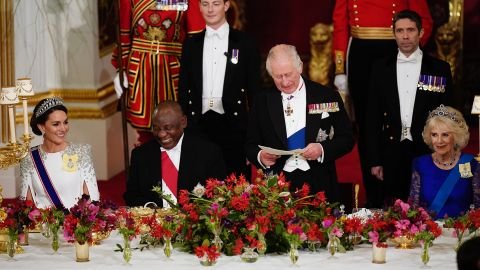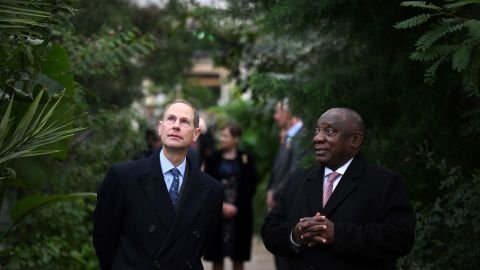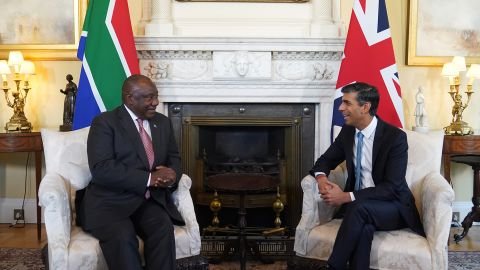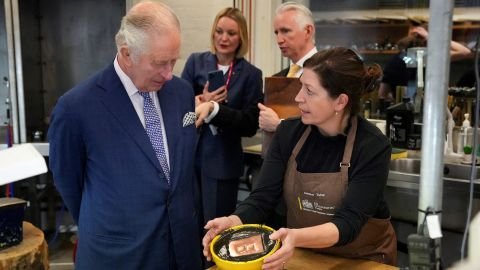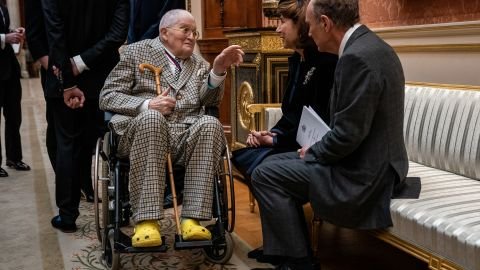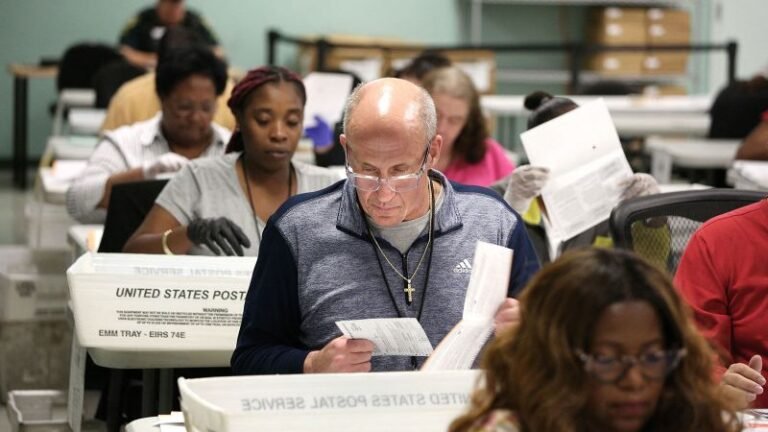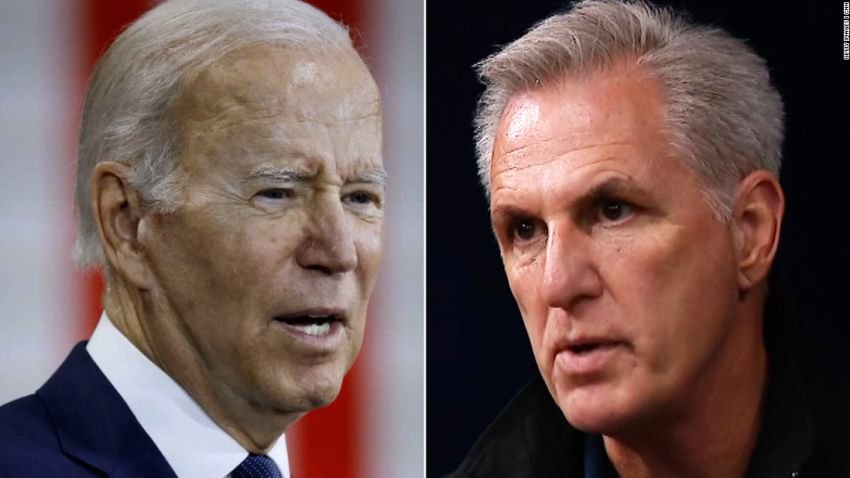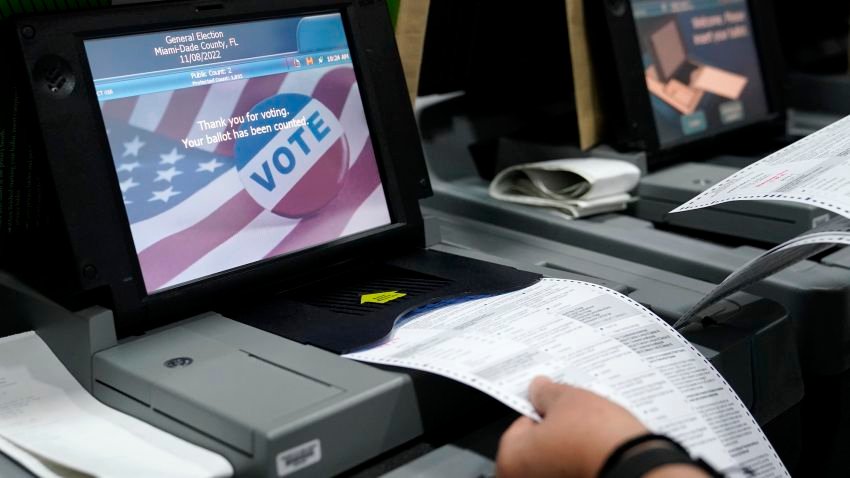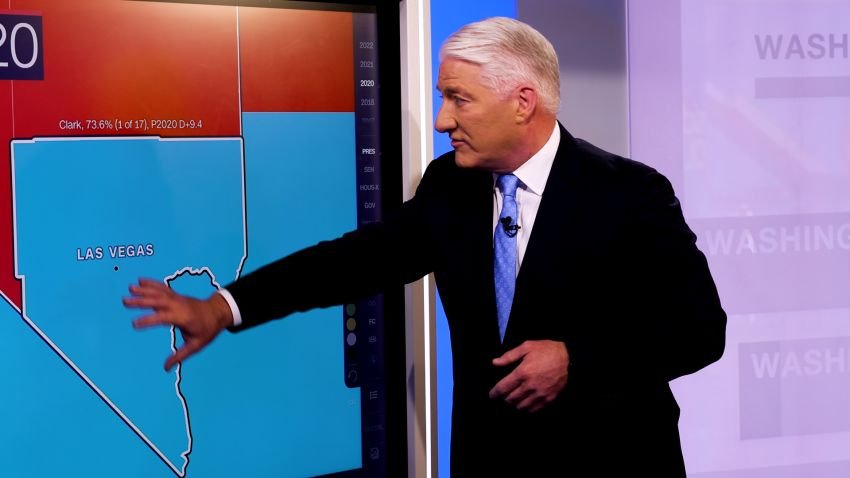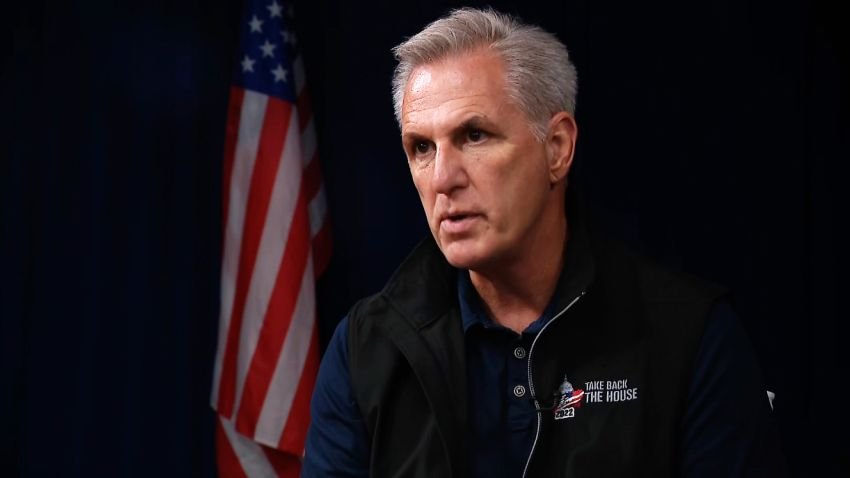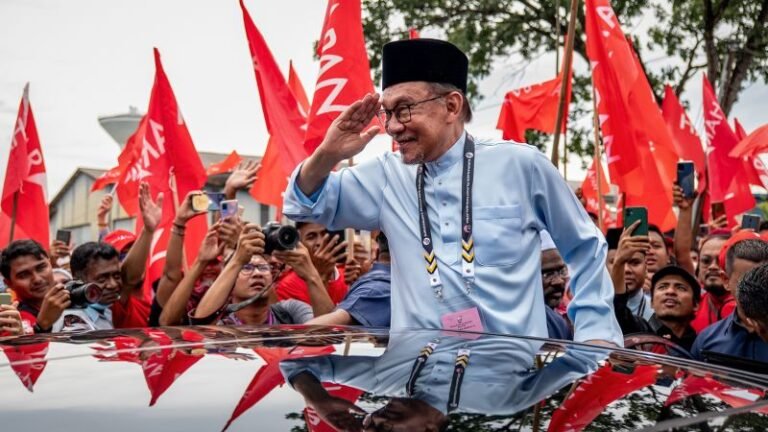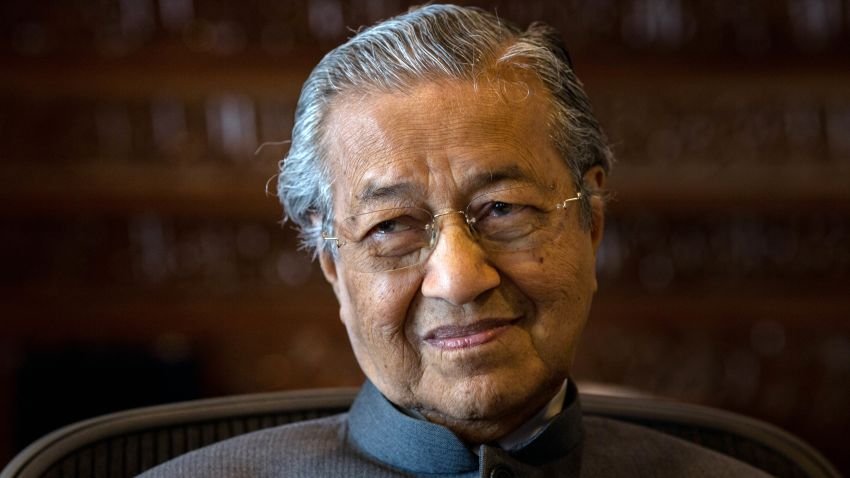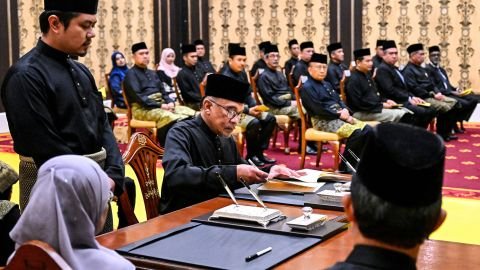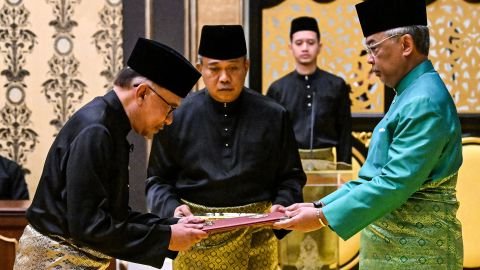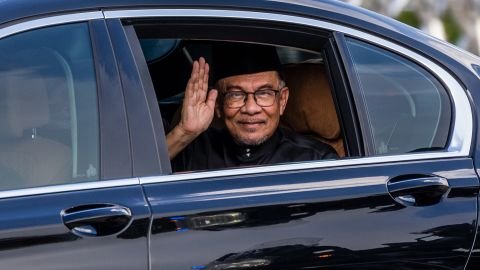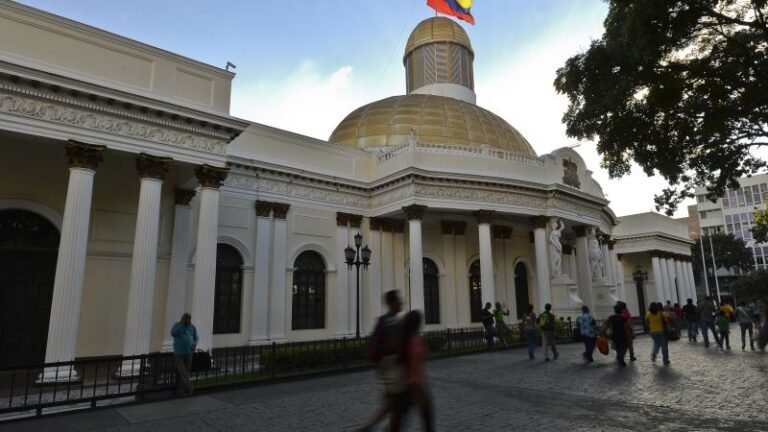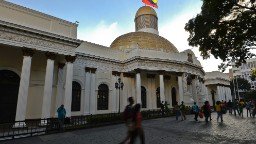[ad_1]
A version of this story appeared in CNN’s Meanwhile in China newsletter, a three-times-a-week update exploring what you need to know about the country’s rise and how it impacts the world. Sign up here.
CNN
—
For the first time in decades, thousands of people have defied Chinese authorities to protest at universities and on the streets of major cities, demanding to be freed not only from incessant Covid tests and lockdowns, but strict censorship and the Communist Party’s tightening grip over all aspects of life.
Across the country, “want freedom” has become a rallying cry for a groundswell of protests mainly led by the younger generation, some too young to have taken part in previous acts of open dissent against the government.
“Give me liberty or give me death!” crowds by the hundreds shouted in several cities, according to videos circulating online, as vigils to mark the deaths of at least 10 people in a fire in Xinjiang spiraled into political rallies.
Videos circulating online seem to suggest China’s strict zero-Covid policy initially prevented emergency workers from accessing the scene, angering residents across the country who have endured three years of varying Covid controls.
Some protesters chanted for free speech, democracy, the rule of law, human rights, and other political demands across cities from the eastern financial hub of Shanghai to the capital Beijing, the southern metropolis of Guangzhou and Chengdu in the west.
CNN has verified protests in 16 locations, with reports of others held in dozens of other cities and universities across the country.

Protesters take to Hong Kong’s streets in solidarity with mainland
While protests in several parts of China appear to have largely dispersed peacefully over the weekend, some met a stronger response from authorities – and security has been tightened across cities in a country were authorities have far-reaching surveillance and security capabilities.
In Beijing, a heavy police presence was apparent on Monday evening, a day after protests broke out there. Police vehicles, many parked with their lights flashing, lined eerily quiet streets throughout parts of the capital, including near Liangmaqiao in the city’s central Chaoyang district, where a large crowd of protesters had gathered Sunday night.
When asked Monday whether “the widespread display of anger and frustration” seen across the country could prompt China to move away from its zero-Covid approach, a Foreign Ministry spokesman dismissed suggestions of dissent.
“What you mentioned does not reflect what actually happened,” said spokesperson Zhao Lijian, who added that authorities had been “making adjustments” to their Covid policies based on “realities on the ground.”
“We believe that with the leadership of the Chinese Communist Party and the Chinese people our fight against Covid-19 will be successful,” he said.

In a symbolic protest against ever-tightening censorship, young demonstrators across China held up sheets of white paper – a metaphor for the countless critical posts, news articles and outspoken social media accounts that were wiped from the internet.
“I think in a just society, no one should be criminalized for their speech. There shouldn’t be only one voice in our society – we need a variety of voices,” a Beijing protester told CNN in the early hours of Monday as he marched down the city’s Third Ring Road with a thin pile of white A4 paper.
“I hope in the future, I will no longer be holding a white piece of paper for what I really want to express,” said the protester, who CNN is not naming due to concerns about repercussions for speaking out.
The United Nations on Monday urged Chinese authorities to guarantee people’s “right to demonstrate peacefully,” Secretary General spokesperson Stephane Dujarric said at a daily briefing.
The sentiment was echoed by the US. During a briefing on Monday, John Kirby, the communications coordinator at the National Security Council, repeatedly reiterated the administration’s policy that “people should be allowed the right to assemble and to peacefully protest policies or laws or dictates that that they take issue with.”
Britain’s Prime Minister Rishi Sunak criticized China on Monday, saying “instead of listening to their people’s protests, the Chinese Government has chosen to crack down further, including by assaulting a BBC journalist.”
He was referring to the Sunday arrest of Edward Lawrence by police in Shanghai. The journalist was covering the protest in the city and has since been released, according to the BBC.
Throughout the weekend, censors moved swiftly to scrub videos and photos of the protests from the Chinese internet, though the startling images made headlines worldwide.
In online commentaries, Chinese state media made no mention of the protests, instead focusing on the strengths of Beijing’s anti-Covid policies, emphasizing they were both “scientific and effective.”
But to many protesters, the demonstrations are about much more than Covid – they’re bringing together many liberal-minded young people whose attempts to speak out might otherwise be thwarted by strict online censorship.
A Shanghai resident in their 20s who took part in the candlelight vigil in the early hours of Sunday said they were greeted by other young people holding white papers, flowers and shouting “want freedom” as they walked toward the makeshift memorial.
“My friends and I have all experienced Shanghai’s lockdown, and the so-called ‘iron fist’ (of the state) has fallen on all of us,” they told CNN, “That night, I felt that I could finally do something. I couldn’t sit still, I had to go.”
They broke into tears quietly in the crowd as the chants demanding freedom grew louder.
“At that moment, I felt I’m not alone,” they said. “I realized that I’m not the only one who thinks this way.”

In some cases, the protests have taken on an even more defiant tone and openly called for political change.
During the first night of the demonstrations in Shanghai, a crowd shouted “Step down, Xi Jinping! Step down, Communist Party!” in an unprecedented, direct challenge to the top leader. On Sunday night, some protesters again chanted for the removal of Xi.
In Chengdu, the protesters did not name Xi, but their message was hard to miss. “Opposition to dictatorship!” chanted hundreds of people packing the bustling river banks in a popular food and shopping district on Sunday evening, according to videos and a participant.
“We don’t want lifelong rulers. We don’t want emperors!” they shouted in a thinly veiled reference to the Chinese leader, who last month began a norm-shattering third term in office.
According to the participant, the crowd also protested against revisions to the party charter and the state constitution – which enabled Xi to further cement his hold on power and scrap presidential term limits.
Much like in Shanghai, the gathering started as a small candlelight vigil for people killed in the fire in Urumqi on Thursday.
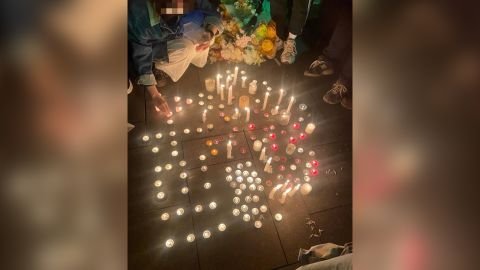
But as more people gathered, the vigil turned into a louder arena to air political grievances.
“Everyone started shouting these slogans very naturally,” the participant said. “It is so rare that we have such a large-scale gathering and demonstration. The words of mourning didn’t feel enough, and we had to shout out some words that we want to say.”
To her, the experience of suffocating censorship inevitably fuels desire for “institutional and spiritual freedom,” and mourning the victims and demanding democracy and freedom are two “inseparable” things.
“We all know that the reason why we have to keep undergoing lockdowns and Covid tests is that this is a political movement, not a scientific and logical response of epidemic prevention,” she said. “That’s why we have more political demands other than lifting lockdowns.”
The Chengdu protester said she felt encouraged by the wave of demonstrations sweeping the country.
“It turns out there are so many people who are wide awake,” she said. “I feel like I can see a glimmer of light coming through ahead.”
[ad_2]
Source link
